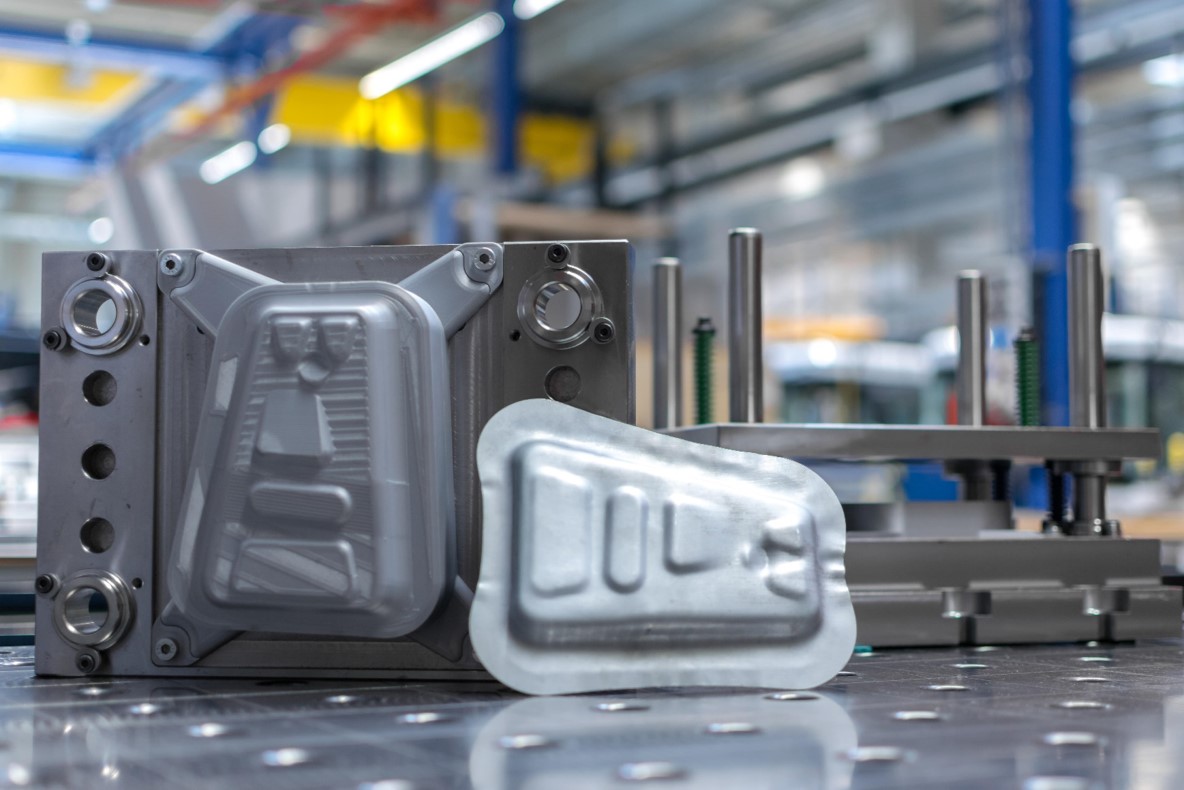
Anlauffabrik/Schulmann
The plastic-based additive manufacturing of tools (additive tooling) represents a solution approach for the rapid and cost-effective development and industrialization of electric vehicles. On the one hand, it can be used, for example, to produce body panels for use in prototype and pre-series vehicles, thus offering an alternative to conventional stamping and deep drawing. On the other hand, components in a battery storage system such as the cell connectors, voltage collectors, module connectors and housing parts can be produced. In the vehicle interior, covers, brackets or complete consoles can be produced by additively manufactured injection molds. The Fused Filament Fabrication (FFF) process is primarily used for fast and cost-effective production of additively manufactured tools. In this process, a thin plastic wire is melted using an extrusion head that can be moved in all three spatial directions and deposit layer by layer in the X-Y plane until the component is completely constructed. With current processes, sufficient accuracy is possible for the forming of sheet metal components and the requirements placed on them. The forming tools are made of ABS or PLA plastic, which is suitable for the use cases due to its good mechanical properties and low material and processing costs.
Since the production costs of additively manufactured tools are often significantly lower than those of conventional tools and thus have lower initial acquisition costs, the tools can simply be “reprinted” as the component geometries change. The same applies if the maximum tool life is reached and further components are required. In this case, it is still cheaper to “print out” the tool again. In addition, a significantly reduced production time can be seen for additively manufactured tools, whereby a production time of approx. one day can be realized, particularly in the case of internal additive manufacturing, due to the existing infrastructure.
